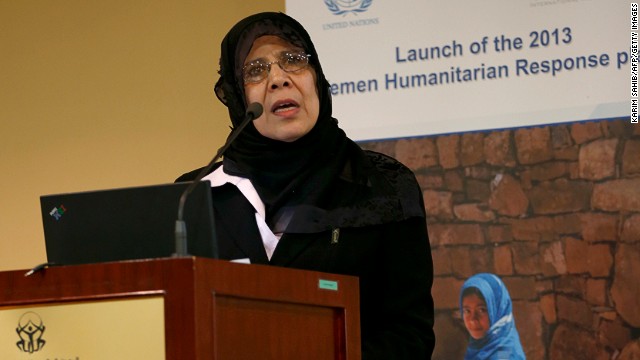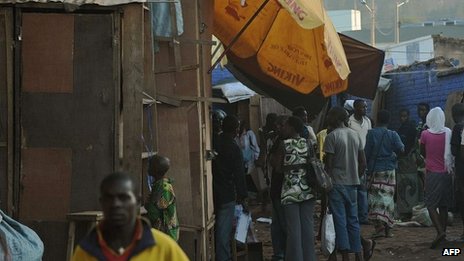By Kathryn Maureen Ryan
Impunity Watch, Middle East
SANA’A, Yemen – Yemen’s Minister for Human Rights, Huriya Mashhoor has called for child marriages to be outlawed in the country. She is attempting to revive a 2009 bill that would have set the minimum marriage age at 17; she is aiming to raise this age to 18. The 2009 bill was passed by Yemen’s parliament. However, conservative parliamentarians argued the bill violated Islamic law, which does not specify a minimum age of marriage. As a result of their protests, the bill was signed, but never entered into law. Yemini law still maintains an ambiguous definition of a “child”, which makes it difficult to set a minimum age requirement for marriages.

Mashhoor’s call for marriage reform was a direct response to the reported death of eight-year-old Rawan, who died last week on her wedding night of internal bleeding caused by sexual intercourse. The eight-year-old girl had been married-off to a man in his 40s.
“This isn’t the first time a child marriage has happened in Yemen, so we should not focus only on this case,” Mashhoor said of the incident. “Many child marriages take place every year in Yemen. It’s time to end this practice.” Mashhoor said that she personally spoke to the human rights coordinator for the ministry in Haradh, where the incident took place, and he informed her that nearly everyone he spoke to is denying that Rawan’s death was caused by intercourse. According to one resident of the area, “No one is talking about this story because it’s an embarrassment, but this is what poverty can do to people.”
According to the United Nations, about half of Yemen’s 24 million people lack sufficient food and access to safe water. Child marriages are common amongst poor families in Yemen. Impoverished families often marry-off under-aged girls in order to bring in extra income from the dowry of the under-aged girl. Marriage is often seen as a way to save on the cost of raising their daughters.
The international community has called for marriage reform in Yemen in response to Rawan’s death as well as other reported cases of child marriages in the country, including allegations made by an 11-year-old Yemeni girl named Nada Al-Ahdal in a video posted to YouTube, accusing her parents of attempting to marry her off for money. The video was viewed by millions of people around the world and has raised awareness about the ongoing problem of child marriages in Yemen.
Catherine Ashton, Foreign Policy Chief for the European Union urged Yemini authorities to investigate Rawan’s death “without delay, and to prosecute all those responsible for this crime.”
According to Human Rights Watch, “the current political transition and drafting process for a new constitution offer a unique opportunity for the Yemeni government to enact laws protecting the rights of girls.” Mashhoor’s calls for change may demonstrate the potential for reform offered by the transition process.
For more information please see:
BBC News – Yemeni Minister Seeks Law to End Child Marriage – 13 September 2013
Al Jazeera – Yemeni Minister to Seek Child-Marriage Ban – 14 September 2013
Associated Free Press – Yemen Rights Minister Wants Child Bride Ban – 14 September 2013
CNN International – Yemen Minister on Child Marriage: Enough Is Enough – 16 September 2013



